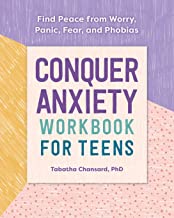Social Anxiety Disorder
Cluster Number:
Wiki Number: PW208
Diagnosis: Social Anxiety Disorder
US Patients: 66% were co-morbid with another anxiety disorder, most commonly depression(1.49-3.5X)
World Patients:
Sex Ratio:
Age Onset:
Brain Area: amygdala becomes hyperactive, dopamine lower in the striatum, serotonin lower, anterior cingulate cortex-social pain!
Symptoms: fearing negative evaluation from others producing fear, anxiety and distress with impaired ability in social situations
Progression: stammering, rapid speehc, panic attacks, low self-esteem, sleep deprivation. Avoidance of social situations
Causes: 2/3 genetics or observational learning from a relative, socially isolated, insecurem shame, alcohol, core beliefs about self
Medications: SSRIs. Antidepressants, beta-blockers,
Therapies: CBT, Wolpe’s systematic-desensitization
Youtube Videos: Social Anxiety: Here’s How To Spot the Signs
Amazon or Library Book: Conquer Anxiety Workbook for Teens
Click the book to link or order from Amazon.

